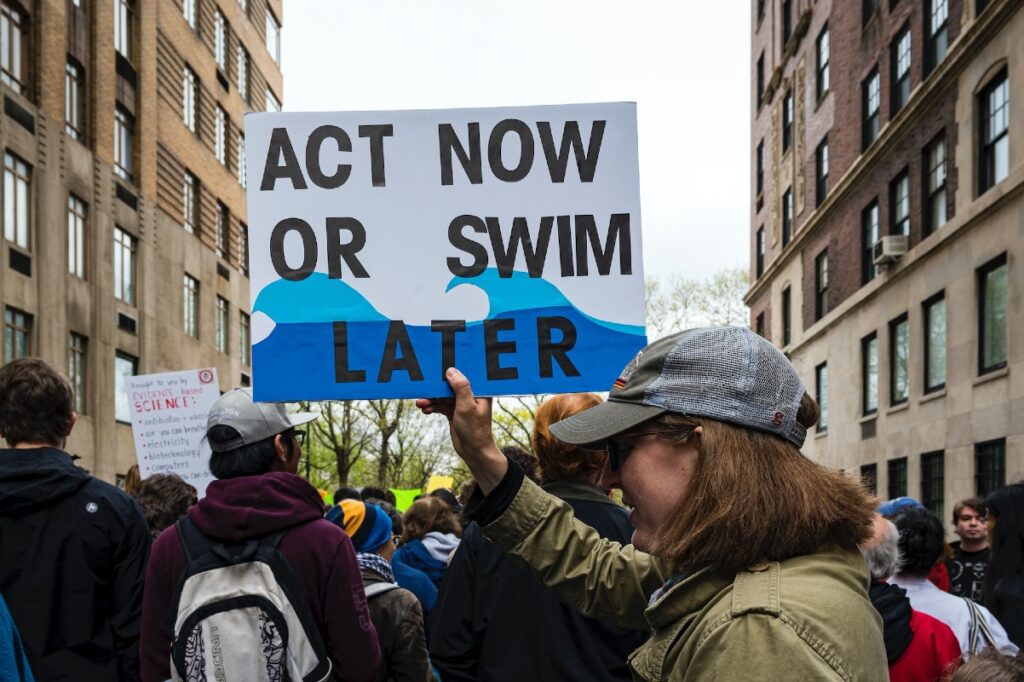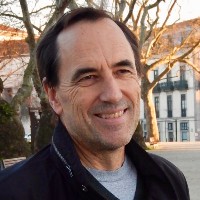
By Andy Brack | More people are accepting the realities of climate change as summers are hotter, wildfires are increasing, and water temperatures are warmer. Flooding, particularly along the Lowcountry, is getting worse.
 But if we don’t start doing something about it, which former Vice President Al Gore has been warning about for more than two decades, our planet faces peril as glaciers melt, coastlines change and temperatures soar. Just this summer, the ocean around Key West was more than 100 degrees Fahrenheit.
But if we don’t start doing something about it, which former Vice President Al Gore has been warning about for more than two decades, our planet faces peril as glaciers melt, coastlines change and temperatures soar. Just this summer, the ocean around Key West was more than 100 degrees Fahrenheit.
The Lowcountry is the canary in the coal mine for the impacts of climate change.
“The longer we burn fossil fuels, the hotter it will be, and what we’ve seen this last summer will get worse,” said noted science author Jeff Goodell in a recent interview. He’s a Texan who explored the impact of rising air temperatures in The Heat Will Kill You First: Life and Death on a Scorched Planet. He also is part of a Nov. 10 panel discussion at the Charleston Literary Festival that probes how Charleston is especially vulnerable to rising global temperatures and seas.
Summertime is lasting longer and becoming more severe, he said.
“Heat changes how we think about what summer means,” he said. “Summer becomes this time where we all live more like a vampire — you’re indoors in the day” in the air-conditioning. Summer heat, in fact, is already changing behaviors — from roads being built at night to people exercising before sunrise or after sunset.

Goodell emphasized heat is an immediate risk to people’s lives and it can kill quickly by dehydrating and causing stress on the body. But rising seas – a byproduct of rising temperatures –are a longer-term issue that cause more impact to infrastructure, he said.
“Sea-level rise is an infrastructure risk,” Goodell said. “No one is standing on the beach on one of the outer islands and drowns because sea-level rise is coming up too fast.”
Rising waters are slow – and when they ebb, people often forget about them, particularly when a sunny Chamber of Commerce day comes immediately after.
Dale Morris, chief resilience officer for the city of Charleston, says that too often, people don’t consider the crippling impact of water in a low area like Charleston.
“People think storm surge isn’t a problem in Charleston,” said Morris, who also is part of the Nov. 10 panel discussion. “It is, in fact, the highest risk we face.”
Morris said people need to start talking about the issues of heat, water and the Lowcountry’s changing weather. He pointed to recent flooding of city streets during Tropical Storm Idalia, which hit Charleston during a king tide.
“That type of disruption happens four or five times a year — it used to happen once every five years,” he said, adding that by 2050 it could happen 16 to 25 times a year if nothing changes.
Goodell, who also has written a book on flooding, emphasized how heat will sneak up on you, unlike rising water.
“One of the things that a place like Charleston has to think about is the divide between the people who have air-conditioning and the people who don’t – outdoor workers, farm workers, delivery workers. And anybody who has any kind of health condition is so much more vulnerable to heat.”
Cities like Charleston and Austin, where Goodell lives, are in the belly of the beast of climate change because they’re getting hit from different weather-related directions – from rising seas, heat and flooding in the Holy City to tornadoes and extreme heat in Austin.
“If you asked me what are the places in the United States most at risk from changing climate, I would put Charleston right at the top of the list.”
He added that the problems faced by cities like Charleston need to be viewed more broadly.
“This is a political problem and a problem of governance and how we’re going to invest in preparing the city for this climate that’s coming,” he said. “The scale of the challenges that a place like Charleston faces is far beyond what a city council can deal with.”
Andy Brack is editor and publisher of Statehouse Report and the Charleston City Paper. Have a comment? Send to: feedback@statehousereport.com.


